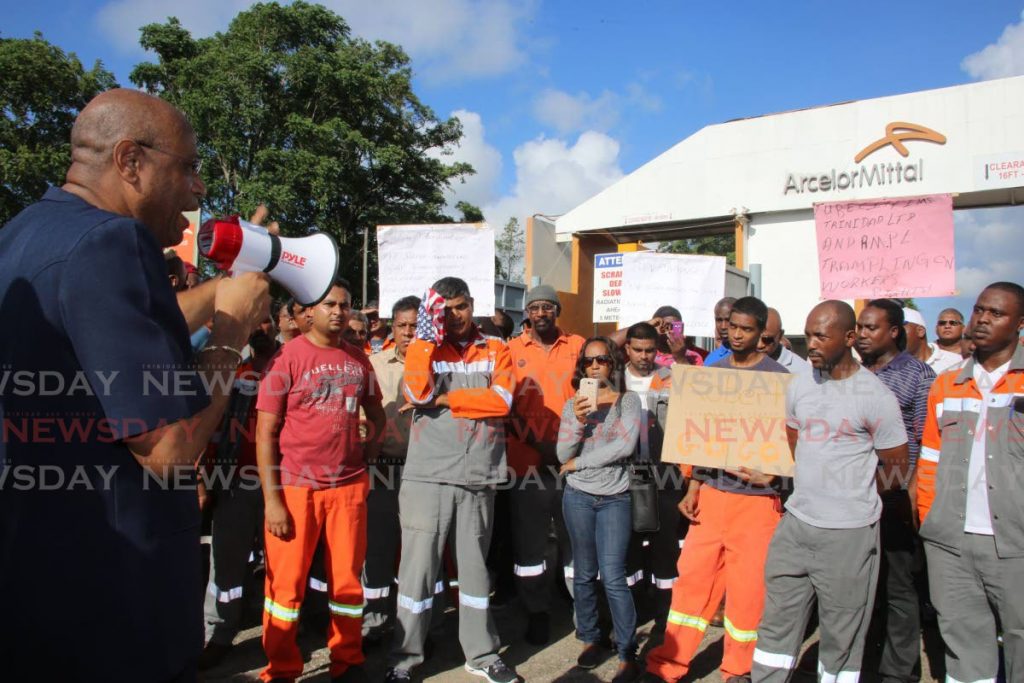Checkmate in game of industrial relations

DIANA MAHABIR-WYATT
Watson Duke is doing it again, this time reportedly encouraging workers at the National Insurance Board to strike in order to get the pay increases negotiated for them covering three years ago in the past, but never paid out.
The board argued that the increases were never approved by the government body set up to do so, and were neither budgeted for nor could be afforded, as not enough contributions came in to cover the increases, so the agreement to do so was not, in fact, legal. The union said, “Never mind that. An agreement is an agreement and when signed and registered by the Industrial Court has the force of law.”
Industrial-relations chess, I call it.
My information was gained by reading the daily press, so if there are other issues or a hidden agenda it has not been revealed to those looking on.
It appears that they are both correct, so the resultant impasse may have to be sorted out by a higher power. Reminds me of the political impasse in Tobago. Or the famous case with AcelorMittal which went to the Industrial Court when the company said that it could not meet union demands already agreed to, and the union refused to compromise on its position. The company, which employed over 1,000 workers, pleaded a drop in international markets and the court ruled that “the law is the law and you employers have to do what you are told to do by the court” or words to that effect. So move, counter-move.
The company shut down, and left the country without paying severance or pension benefits, because another law said if it closed down completely, the company did not have to meet those obligations, on the "you can’t get blood out of a stone" principle. The law is the law is the law. Checkmate!
Then there was even more famous brilliant legal manoeuvre by OWTU lawyers when 68 of NP’s workers went on an illegal strike when two of their members were suspended for refusing to obey a manager’s order. That illegal act of striking, under the law, made them subject to instant dismissal, and they were in fact dismissed. The union took the case to the Industrial Court and the company filed a counter-suit claiming that the strike action was illegal, therefore the terminations were legal.
However, the two suspensions had not been discussed with the union first, so the union charged the company with an industrial-relations offence, and the union’s lawyers, with a straight face, politely asked that the two cases be joined as they related to the same sequence of events. The company’s lawyers politely agreed, and the court ruled on the union’s charge first.
That case was decided in the union’s favour because it was true. The company had not discussed the issue with the union before issuing the suspension notices. So, the cases being joined, both were dismissed at the same time and the illegal strike was never ruled on. Double check.
When law, not good industrial-relations practice, dominates the methodology, interactions can often proceed like a chess game, and who makes the first move and how, can very often determine the outcome of the entire game. Law is like a pharmacist's knife. It can cut both ways, and who is the better chess player wins. When my use of the law trumps your use of the law, I will win.
Lawyers, for example, almost by rote tell their clients in no uncertain terms that under no circumstances are they to admit to being at fault. Every ten-year-old child who has watched a US crime movie or TV police sitcom has memorised the words, “You have the right to remain silent.” That is called their Miranda rights, invoking the fifth amendment to the US constitution.
Trinidad and Tobago, however, is not under the rule of US law and is not bound by the Miranda judgement. And even in the US, I am informed, the Miranda is not always applicable when a police officer asks someone a question. Like many such issues, it is situational.
In the Industrial Court, however, when a judge asks a witness who was present when an incident took place a question and he remains obstinately silent, it can be regarded as contempt of court, as can a series of “I do not remember” responses over and over in a response to legitimate queries in a judge’s genuine attempt to get at the truth. Or silence can simply be accepted that you have no evidence to support the case your party to the dispute is presenting and the decision will have to be based entirely on what the other side has to say. Which is fair, when you come to think about it, as the judges have to hear evidence from both sides of the story, and if evidence is given from only one, ethically and morally, that is what they will have to accept.
Of course, witnesses can always lie. It is amazing how often people do in court, frequently thereby committing perjury. It happens so often that judges become pretty adept after a while at spotting the lie and exposing it in subsequent written awards, the witness is then referred to as “not a witness of truth,”


Comments
"Checkmate in game of industrial relations"